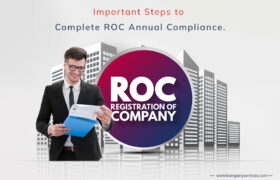Private limited companies and public limited corporations are both legal business structures that can be registered in India. Additionally, there is the option of registering as limited liability partnerships or sole proprietorships. Establishing a private limited company in India is often considered one of the most effective ways to launch a new venture. Once you decide to start a company, selecting the appropriate legal structure for registration is crucial. This choice will impact various aspects of your business, including the company name, obligations to other businesses, and tax and statutory filings.
Advantages of Registering Your Company in Chennai
While you can start a company from anywhere in the country, the process for registering a private or public limited company is the same nationwide. To apply for company registration, you must complete the SPICE+ form available on the MCA website. Registering a company in Chennai offers several benefits, including:
- Legal Independence: The company will be treated as an independent legal entity.
- Increased Customer Attraction: The company may attract more customers.
- Brand Recognition: The business will work to enhance consumer awareness of its brand.
- Expansion Opportunities: The company’s structure can facilitate international expansion.
- Improved Relationships: The company can handle transactions more effectively with manufacturers, vendors, and customers.
- Legal Standing: The company can file claims and be sued in its own name, without implicating the business owner’s personal identity.
- Market Differentiation: It becomes easier to distinguish the company from others in the commercial setting.
- Capital and Stability: It ensures better capital contributions and organizational stability.
- Access to Funding: Easier access to bank funding and investment from reputable investors.
- Growth Potential: Expands opportunities for development and expansion.
Requirements for Registering a Private Limited Company in Chennai
Minimum Number of Participants:
A private limited company must have at least two members and directors. The company must be registered in India, and there can be a maximum of 15 directors. Foreign shareholders must submit their passports along with other forms of identification. However, if approved by a special resolution at the annual meeting, the board can increase the number of directors beyond 15.
Unique Company Name:
The proposed name must be unique and not similar to the name of any existing company. Check for trademark registrations to ensure the name does not infringe on any existing trademarks or intellectual property laws. The name must comply with the Emblems and Names (Prevention of Improper Use) Act of 1950.
Investment in Fixed Assets:
There is no mandatory minimum capital requirement for establishing a corporation, and costs should be evaluated based on the firm’s needs. However, the company’s authorized capital, as mentioned during incorporation, is used to calculate government fees.
Location of Registration:
A commercial space is not required for the registered office; even rented property can serve as a registered office if the landlord’s authorization is obtained.
Process of Registering a Company
Approval of the Company Name:
Submit an application for name reservation using SPICE PART A. Ensure the proposed name is not similar to existing businesses or registered trademarks. Check name availability on the MCA website.
Application for a Digital Signature Certificate (DSC):
Apply for a digital signature certificate from a certifying body. A DSC is a legally binding document used to validate and sign electronic documents.
Submission of MOA and AOA:
Submit the Memorandum of Association (MOA) and Articles of Association (AOA) through the online filing system on the Ministry of Corporate Affairs (MCA) portal.
Application for PAN and TAN:
After completing the necessary documents, apply for a Permanent Account Number (PAN) and Tax Deduction and Collection Account Number (TAN).
Certificate of Incorporation:
The MCA and ROC will review the application. If there are no issues, a Certificate of Incorporation will be issued, granting legal status to the corporation.
Documents Required for Company Registration
- Directors’ PAN cards or passport copies (for NRIs and foreign nationals).
- Two passport-sized photographs of the directors.
- Proof of identity for directors, such as Aadhaar cards or voter ID cards.
- A copy of the lease or relevant property documents, along with proof of address.
- No Objection Certificate (NOC) from the landlord for the office’s electricity or water bill if rented.
- For personal property, a copy of the property deed or sale document is required.
- Foreign nationals must provide a notarized copy of their passport.
- Ensure all documents are valid and proof of residency (such as a bank statement or utility bill) is recent (no older than two months).
Evidence of the Registered Office:
Registering a company in India is essential for the success of any business structure, including private and public limited companies, LLPs, and sole proprietorships. Kompany services offer affordable registration options and provide expert assistance. Under the guidance of skilled legal professionals, you can successfully register your business and access top-tier services.
Private limited companies are among the most popular choices for new ventures due to their ease of securing funding from external sources and their suitability for new businesses.




